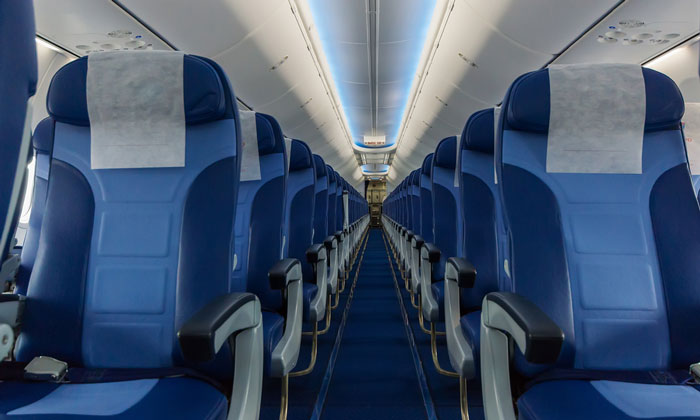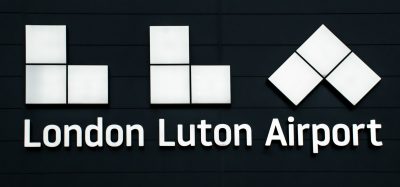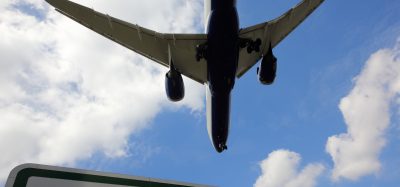Why do airlines oversell seats?
- Like
- Digg
- Del
- Tumblr
- VKontakte
- Buffer
- Love This
- Odnoklassniki
- Meneame
- Blogger
- Amazon
- Yahoo Mail
- Gmail
- AOL
- Newsvine
- HackerNews
- Evernote
- MySpace
- Mail.ru
- Viadeo
- Line
- Comments
- Yummly
- SMS
- Viber
- Telegram
- Subscribe
- Skype
- Facebook Messenger
- Kakao
- LiveJournal
- Yammer
- Edgar
- Fintel
- Mix
- Instapaper
- Copy Link
Posted: 12 April 2017 | Roy Manuell, Digital Editor | 4 comments
In light of the unfortunate recent incident involving United Airlines, we ask: Why did this happen?


It’s all economic.
For each flight, a certain amount of people will fail to show up. It happens every day on almost every flight. Airlines call this the ‘no show rate’ and it differs significantly from route to region and airline – but each airline, route and region is factored into the prediction system.
If, for example, the flight is from a large hub in a city in which several other transportation options are available then the flight is far more likely to have a higher no show rate than say a flight to or from an airport that is far more isolated. Missing a flight to or from a rural airport the US for example, is far more inconvenient for the passenger than missing a flight to or from a well-connected London airport. The flight to or from the rural US airport will consequently have a lower no show rate than the London flight.
Flights late at night on a Sunday will also have a lower no show rate as this is widely considered a more crucial flight to make in order not to miss work on the Monday.
If a flight has an empty seat, this might be considered a lost commercial opportunity for the airline. The system built around predicting the no show rate is fundamentally based around the quality of data collection. This has drastically improved over the last 20 years. In 1990 (as reported by Wendover Productions which you can see in the above video), US airlines denied boarding to 16 out of 10,000 whereas in 2017 the number was down to 9 out of the same figure.
The data and subsequent model around which the sale of seats is based is constantly improving but as we saw with the viral PR disaster suffered by United, it is far from faultless.
In essence, compensating the 500,000 overall passengers per annum that are denied seats they have already booked costs far less than refraining from overselling and losing the potential revenue.
So how do you avoid losing out as a passenger?
The way in which airlines deny seats is based upon a form of meritocracy, the merit of course decided by the airline in question. Usually however, if you are late to check-in or rarely fly with that airline and are not a member of any frequent flier scheme, then you have a decent chance of losing out.
Checking in early or joining a frequent flier scheme is perhaps the answer to this.
The airline model
Airlines inherently seek to maximise the profit on each and every flight – make the most amount of revenue per seat – in order to reduce the overall price of a ticket. If consumers want cheaper flights, it’s up to the airline to ensure they do it can to satisfy this demand.
The low-cost revolution and overarching consumer demand has forced the wider industry into practice such as overselling seats.
We must now question whether it really is worth it having seen the media and consumer condemnation United have since faced.


















Overbooking is not as simple as that. Problems arise on flights with average LF of over 80% (the busiest routes) with worst consequences on sectors to/from congested airports. What is not taken into account are frequent disruptons that generate unperceived problems and incure costs that usually highly surpass the benefits of overbooking. More on my latest post beyonddisruptions.blogspot.co.uk/2017/04/are-airline-megamergers-becoming-united.html?m=1
But how can they lose money?
If you want to fly, they make you pay up front.
If you are a no show, you do not get a refund, unless you are covered by separate insurance, and that does not come out of the airline’s pocket.
Why should they be allowed to oversell because they are greedy and want full planes?
They have already sold tickets for every seat.
Why can they sell something twice? How can that be legal?
Why are they allowed to prevent you from traveling when you have paid in advance for the seat?
GREED. That is all it is..
Answers to the questions: “But how can they lose money?” Imagine you have a plane with 100 seats. Now imagine it takes 80 seats to pay for the flight (including fuel, staff, ground costs, cost of equipment etc..) Also, customers pay more for flexibility. If you want to change your fight with no costs you pay more as a customer. If you want a cheap ticket you must pay for every change. If it takes 80 seats to pay for the flight, and they only sell 60 because for some of the seats they sold the customers didn’t’ turn up, then every flight is running at a loss.
“If you want to fly, they make you pay up front.” The airline has already paid out for their running costs. They also make forecasts a long time ahead. There is no point having planes sitting on the ground not making any money, because all that costs the airlines.
“If you are a no show, you do not get a refund, unless you are covered by separate insurance, and that does not come out of the airline’s pocket.” Not to do with having extra insurance but to do with the conditions of your booking.
“Why should they be allowed to oversell because they are greedy and want full planes?” No. it is so that they can keep offering you a service to where you want to go in the future at a price you are willing to pay.
“They have already sold tickets for every seat.” Not always.
“Why can they sell something twice? How can that be legal?” Through analysis they can tell how many people on average won’t turn up for a particular flight. But forecasts can be wrong, and sometimes everybody who has booked a seat turns up.
“Why are they allowed to prevent you from traveling when you have paid in advance for the seat?” In UA’s case they needed staff to fly in order to operate another flight. How would you feel if your flight was cancelled because the staff couldn’t get to it on time?
“GREED. That is all it is..” It’s called running a business profitably.
“But how can they lose money?” – i think Anisah means, if the flight was already fully-booked, how can airline loose money by not over-booking? i think they just loose the opportunity for additional profit at the expense on the paying pax that shows up.
“They have already sold tickets for every seat.”- again in the premise that the flight is fully booked.